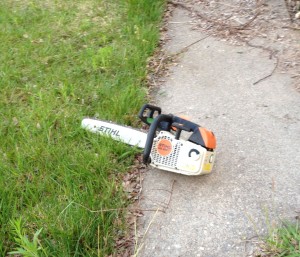An Actionable Nuisance Requires an Unreasonable Interference
In order to prove, recover damages, or obtain an injunction to stop a nuisance, the plaintiff must prove that the objectionable activity or condition constitutes an unreasonable interference with the plaintiff’s use and enjoyment of (the plaintiff’s) property.
The fact that a plaintiff dislikes a situation, or finds it annoying, or wishes the defendant would stop or correct it, is not enough to prove that the relevant condition or activity is an unreasonable interference. The plaintiff’s personal fears (without more) are also insufficient to meet this burden.
In addition, the objectionable activity or condition must be in existence. Plaintiffs cannot sue to stop a “potential nuisance” from occurring. However, if the plaintiff has another legal claim relating to the potential harm which is already timely (in existence) that claim may be sufficient to stop the activity from occurring–though not necessarily under nuisance law. If you have fears or concerns about potential harms to yourself, your family, or your property, consult an attorney promptly to see whether some other cause of action may be used to prevent the injury from occurring.
THE LEGAL TEST FOR UNREASONABLE INTERFERENCES
Courts review potential nuisances, and nuisance claims, according to an objective standard. An unreasonable interference is one which reasonable people would consider to be an unreasonable situation after reviewing all of the facts and circumstances from an objective and impartial point of view.
OTHER FACTORS MAY ALSO INFLUENCE WHETHER A USE IS UNREASONABLE
Courts may consider whether or not a plaintiff moved to the area before or after the alleged nuisance use was already in progress. Moving to an area after the activity or situation already existed is sometimes referred to as “coming to the nuisance” – and although that fact alone will not prevent a court from holding that a nuisance exists, the court will consider whether the plaintiff or the defendant was “first in time” with regard to the potential nuisance.
The duration and frequency of the alleged nuisance is also a factor courts consider. Activities and situations which occur only sporadically, and last for shorter periods, may be less likely to qualify as nuisances. However, even activities of relatively short duration may be deemed nuisances if the interference is substantial and unreasonable.
SUBSTANTIAL INTERFERENCE IS REQUIRED TO RECOVER DAMAGES FOR NUISANCE
Recovery of monetary damages on a nuisance theory can be difficult–courts often prefer to simply enjoin (issue an order to stop) the nuisance when they can. However, if the plaintiff can prove “substantial” interference as well as unreasonable interference (along with all other necessary elements of a nuisance claim) the court does also have the power to award money damages in nuisance cases.
Where the harm is not “substantial”–merely “unreasonable”–the court will normally issue an injunction (an order) requiring the defendant to cease the relevant activity or otherwise stop creating the nuisance. The plaintiff won’t receive money damages, but the nuisance issue is resolved.
***
DISCLAIMER: This article is intended for informational purposes only, does not constitute legal advice to any person or entity, and does not create an attorney-client relationship with any person or entity. Trespass, nuisance, and premises liability are complex legal topics, and no single article can provide complete or comprehensive coverage or information about this or any other legal topic or issue. Your personal rights and liabilities may differ, based on individual facts and circumstances. If you believe you have a legal claim or issue, or wish to know more about your individual rights, consult an experienced attorney immediately.
















